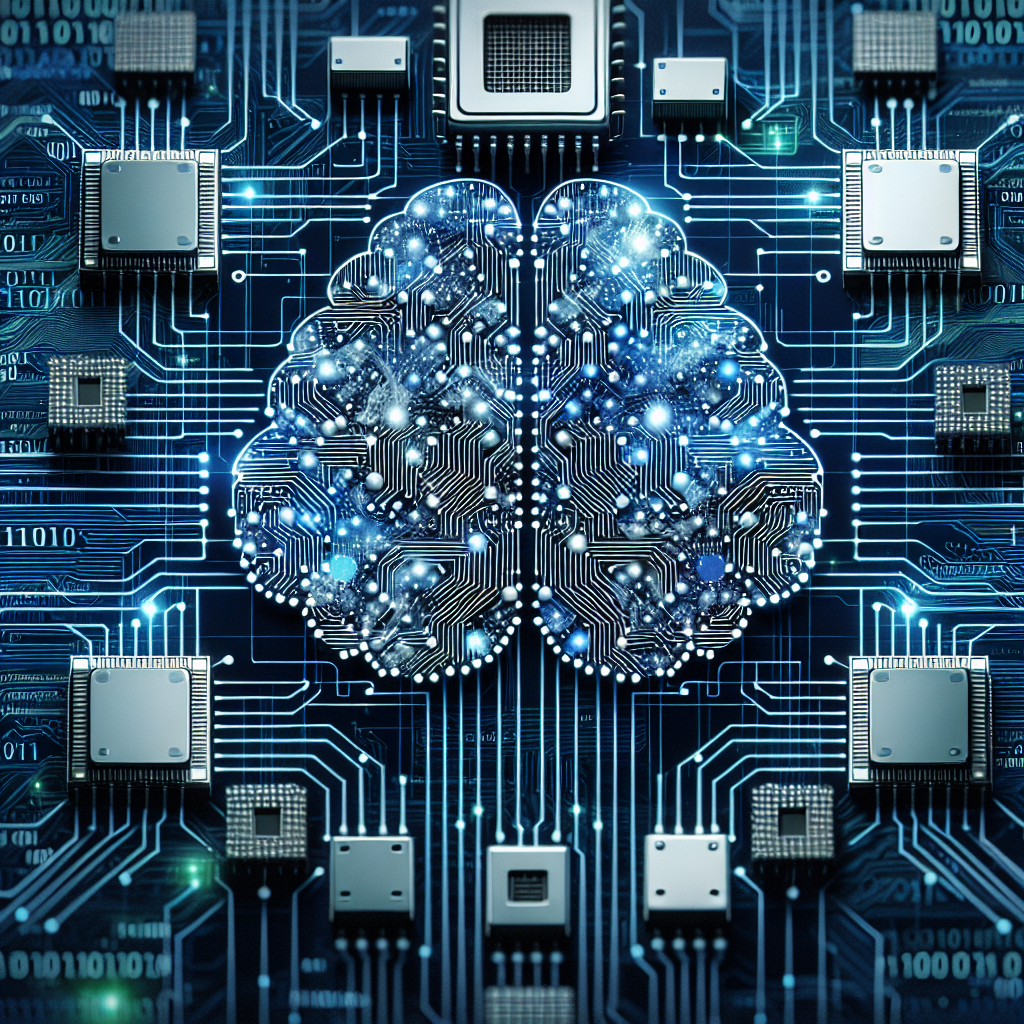Artificial intelligence (AI) has been a rapidly evolving field in recent years, with new advancements and developments being made at a staggering pace. From self-driving cars to virtual assistants, AI technology is becoming more integrated into our daily lives than ever before. In this article, we will explore some of the latest developments in artificial intelligence and how they are shaping the future of technology.
One of the most exciting developments in AI is the rise of deep learning algorithms. Deep learning is a subfield of machine learning that uses neural networks to simulate the way the human brain works. These algorithms are able to learn from large amounts of data and make decisions based on that information. This has led to major breakthroughs in areas such as image recognition, speech recognition, and natural language processing.
For example, companies like Google and Facebook are using deep learning algorithms to improve their image recognition software. These algorithms are able to identify objects and people in photos with a high level of accuracy, making it easier for users to search for specific images or videos online. In addition, deep learning algorithms are being used to improve speech recognition software, making it easier for virtual assistants like Siri and Alexa to understand and respond to user commands.
Another major development in AI is the rise of reinforcement learning. Reinforcement learning is a type of machine learning that uses a system of rewards and punishments to teach an AI agent how to make decisions. This approach has been used to develop AI systems that are able to play complex games like chess and Go at a professional level.
For example, DeepMind, a subsidiary of Google, used reinforcement learning to develop AlphaGo, an AI system that was able to defeat the world champion Go player in a series of matches. This achievement was a major milestone in the field of AI, as Go is a highly complex game with more possible board positions than there are atoms in the universe.
In addition to deep learning and reinforcement learning, researchers are also exploring new ways to improve the performance of AI systems. One approach that has gained traction in recent years is the use of generative adversarial networks (GANs). GANs are a type of neural network that consists of two separate networks – a generator and a discriminator – that work together to generate new data.
For example, researchers have used GANs to create realistic images of people who do not actually exist. These images are generated by the generator network, and then evaluated by the discriminator network to determine if they are realistic. This technology has potential applications in fields such as virtual reality, where realistic avatars are needed for immersive experiences.
In addition to these developments, researchers are also exploring ways to improve the ethical and social implications of AI technology. As AI becomes more integrated into our daily lives, there are concerns about issues such as privacy, bias, and job displacement. Companies and governments are working to develop guidelines and regulations to address these concerns and ensure that AI technology is used in a responsible and ethical manner.
One of the most common questions about artificial intelligence is whether it will replace human jobs. While it is true that AI technology has the potential to automate many tasks currently performed by humans, it is unlikely to replace all jobs. Instead, AI is more likely to augment human capabilities and create new opportunities for employment in fields such as data science, machine learning, and software development.
Another common question is whether AI technology will become sentient and pose a threat to humanity. While this scenario is a popular trope in science fiction, it is unlikely to become a reality in the near future. AI systems are designed to perform specific tasks and are not capable of independent thought or consciousness. However, researchers are working to develop ethical guidelines and regulations to ensure that AI technology is used in a safe and responsible manner.
In conclusion, artificial intelligence is a rapidly evolving field with many exciting developments on the horizon. From deep learning algorithms to reinforcement learning and generative adversarial networks, researchers are pushing the boundaries of what is possible with AI technology. As AI becomes more integrated into our daily lives, it is important to consider the ethical and social implications of this technology and work to ensure that it is used in a responsible and beneficial manner.
FAQs:
Q: Will AI technology replace human jobs?
A: While AI technology has the potential to automate many tasks currently performed by humans, it is unlikely to replace all jobs. Instead, AI is more likely to augment human capabilities and create new opportunities for employment in fields such as data science, machine learning, and software development.
Q: Is there a risk that AI technology will become sentient and pose a threat to humanity?
A: While this scenario is a popular trope in science fiction, it is unlikely to become a reality in the near future. AI systems are designed to perform specific tasks and are not capable of independent thought or consciousness. However, researchers are working to develop ethical guidelines and regulations to ensure that AI technology is used in a safe and responsible manner.

